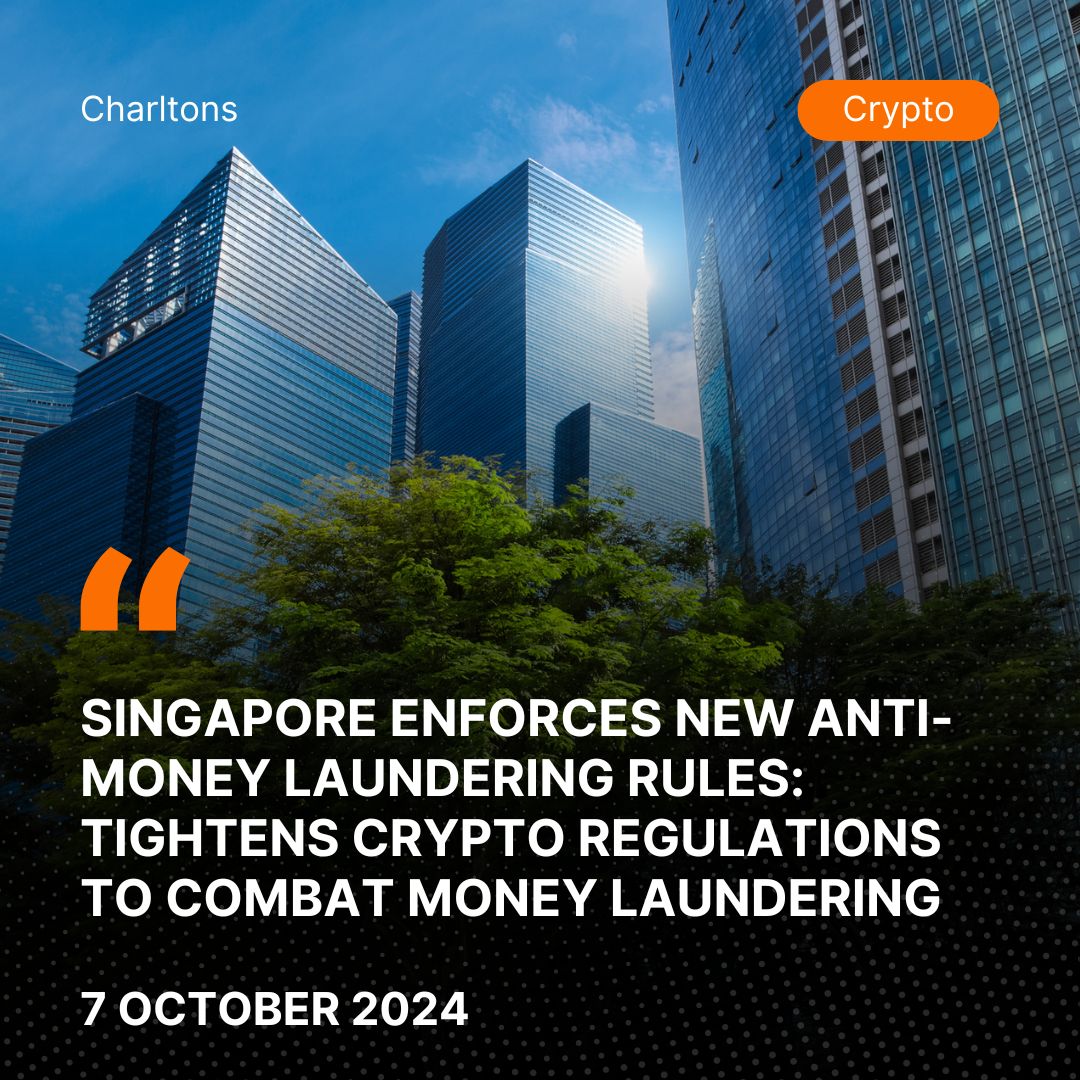
On 4 October 2024, the Singapore’s Inter-Ministerial Committee (IMC) issued its report, presenting the findings and recommendations following a comprehensive review of Singapore’s Anti-Money Laundering framework. The report discusses in detail the areas of the AML system, assesses its effectiveness, and proposes improvements to strengthen Singapore’s stance against money laundering activities which aim to align Singapore’s regulatory measures with global best practices and ensure that the framework remains effective and responsive in emerging financial threats.
In background of this on 15 August 2023, the Monetary Authority of Singapore, in collaboration with government bodies such as the Singapore’s Ministry of Finance, Singapore’s Ministry of Home Affairs, Singapore’s Ministry of Law, and the Singapore’s Immigration and Checkpoints Authority, took steps to dismantle the money laundering network. This joint operation led to the arrest of ten individuals and the seizure of more than SG$3 billion in assets. The case emphasized the need to strengthen Singapore’s anti-money laundering framework, resulting in the establishment of the Inter-Ministerial Committee in November 2023 to review and fortify the country’s defenses against financial crime.
The Inter-Ministerial Committee (IMC), established in November 2023, presented recommendations to strengthen Singapore’s Anti-Money Laundering (AML) framework. These recommendations focus on three areas: Prevention, Detection, and Enforcement.
For strengthening of gatekeeper responsibilities entities such as financial institutions, corporate service providers (CSPs), real estate agents, and dealers in precious stones and metals are now required to conduct thorough Customer Due Diligence (CDD) to ensures that criminals are not able to misuse corporate structures or evade financial checks through weak oversight. The regulatory framework has also been expanded to give specific focus to bring more non-financial institutions and professionals under the AML regulatory umbrella to reduce opportunities for money laundering outside traditional financial channels. There is also an increased scrutiny on corporate structures so that companies cannot be used as shells for laundering money. The amendments to the Corporate Service Providers Act (CSP Act) prevent the establishment of shell companies without thorough checks.
The IMC also emphasized the importance of improving detection capabilities by enhancing data sharing and sense-making among different government agencies and has launched the Collaborative Sharing of Money Laundering/Terrorism Financing Information and Cases (COSMIC) platform. This platform allows financial institutions to share real-time data on suspicious individuals and transactions and creating a unified approach to detecting illicit financial activities. The IMC recommended the development of a National AML Verification Interface (NAVIGATE), which will facilitate cross-agency data sharing and analysis to ensure quicker detection of money laundering risks. The system will pool intelligence from various sectors to identify potential risks earlier and more effectively. The report also proposed expanding access to Suspicious Transaction Reports (STRs) for sector-specific agencies, such as ACRA and the Council for Estate Agencies (CEA).
To strengthen the enforcement front, the IMC recommended strengthening legal tools and frameworks to ensure that law enforcement agencies have the powers needed to prosecute money laundering offenses. Legislative amendments were passed under the Singapore’s Anti-Money Laundering and Other Matters Act (AMLOM Act) in August 2024, which lowered the burden of proof in cases involving foreign criminal proceeds to streamline the prosecution process, particularly in cases involving complex, transnational money laundering schemes. The IMC also stressed the need to regularly review penalty frameworks to ensure they remain dissuasive and proportionate to the severity of the crime imposing stricter penalties on gatekeepers who fail to fulfill their AML obligations, holding them accountable for lapses in oversight.
The IMC recommended the Cross-Border Cash Reporting Regime (CBCRR) which proposed high penalties for undeclared cross-border cash movements and the introduction of electronic submissions for reporting designed to make it difficult for criminals to transport illicit funds across borders without detection and to serve as a deterrent against using physical cash as a method of laundering money, particularly in large sums.
To combat with Money Laundering threats, under the Singapore’s Payment Services Act the cryptocurrency service providers and digital payment token service providers, which include cryptocurrency exchanges and wallet providers, are required to conduct robust Customer Due Diligence procedures, similar to those imposed on traditional financial institutions. Under Singapore’s Financial Services and Markets Act, which was updated to broaden the scope of AML regulations to encompass virtual assets. Under this framework, MAS has included stablecoins within the AML/CFT regulatory perimeter and therefore stablecoins, as well as other forms of cryptocurrencies, must adhere to the same anti-money laundering measures as fiat currencies. MAS have implemented provisions that require service providers to comply with travel rule requirements which in principle obliges virtual asset service providers to ensure that information about the originator and beneficiary of cryptocurrency transactions is included and shared during a transfer.
(Source: https://www.mas.gov.sg/-/media/mas-media-library/news/media-releases/2024/imc-report.pdf, https://www.mas.gov.sg/news/media-releases/2024/singapore-refreshes-the-tf-nra-and-national-strategy-for-cft)





